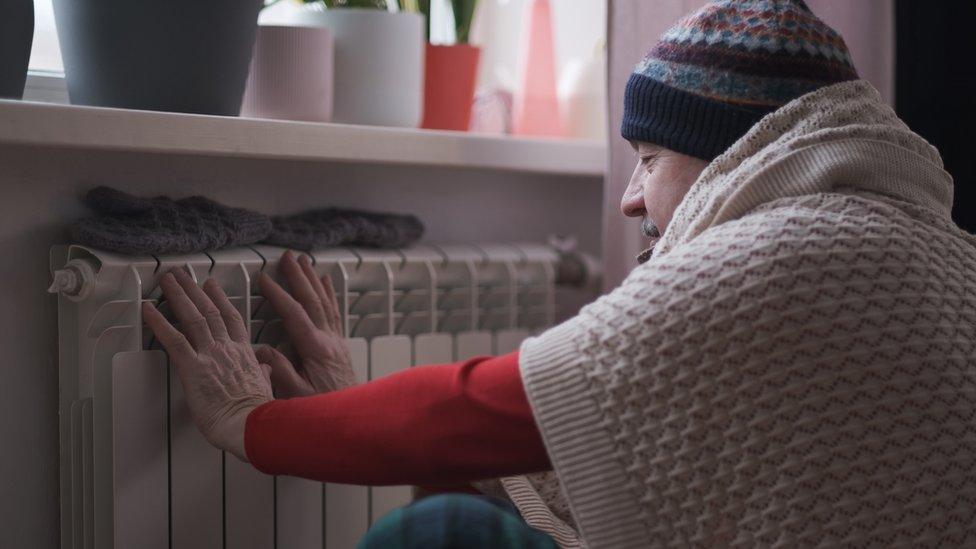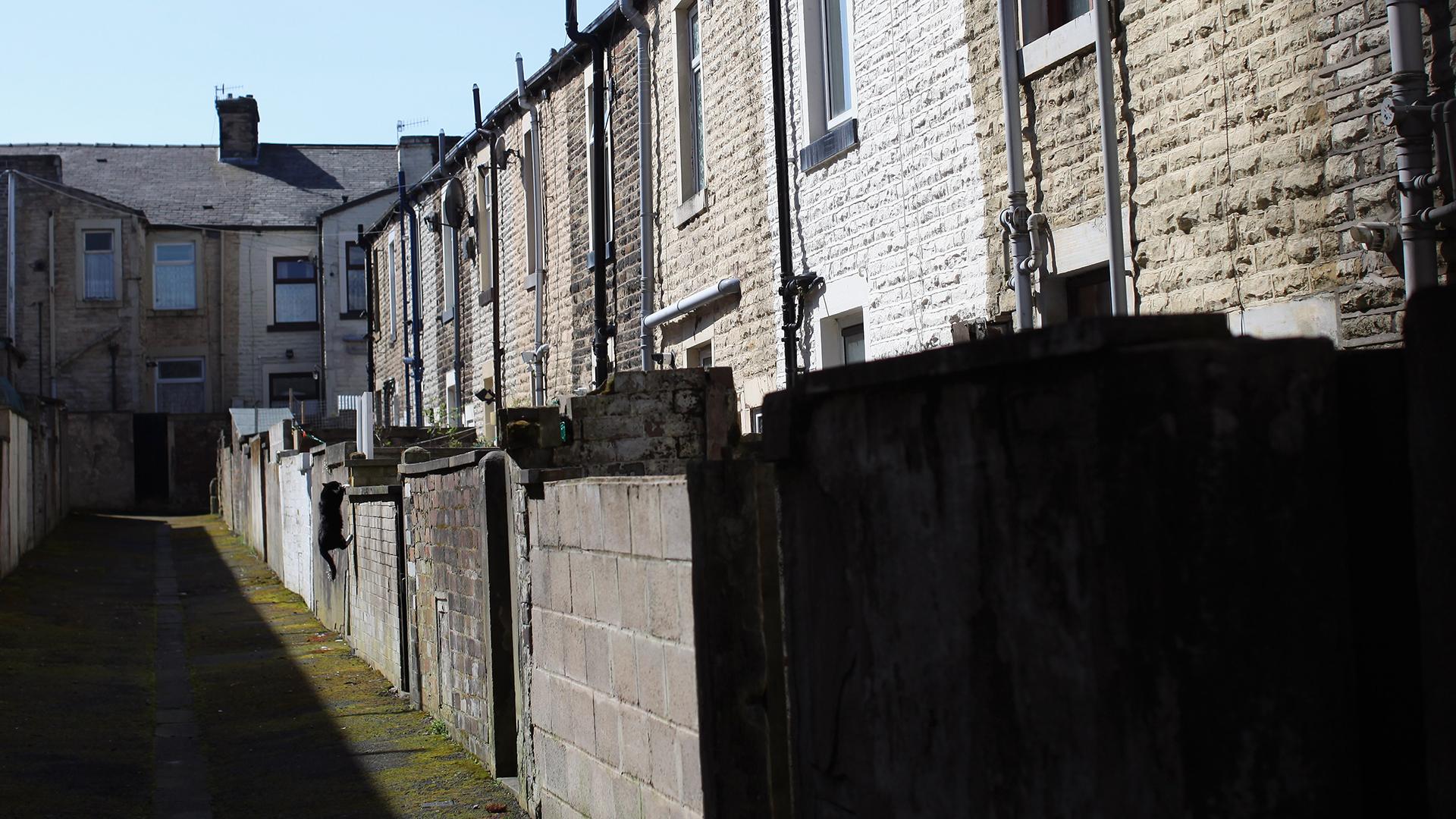Home insulation: How can it cut energy bills?
- Published

An additional £1bn to help British households insulate their properties has been announced by the government.
The money, which builds on an existing scheme, will target homes that have the worst energy performance.
What is the insulation scheme and am I eligible?
Eligible households will be able to receive grants of up to £1,500 for household insulation (such as cavity wall or loft insulation), under the the new Energy Company Obligation + (ECO+) scheme, external.
To benefit, households need to:
be in the lower council tax bands (A-D in England, which is 81% of properties, external, A-E Scotland and A-C in Wales)
have an energy performance certificate (EPC) rating of D or below
About 80% of the funding will go towards households that do not currently benefit from existing government support to upgrade their homes
The remainder of the funding will be set aside to help the most vulnerable households - including those in fuel poverty.
The scheme will start from the spring and run for three years. According to government estimates, households that take part could save about £310 a year on their bills.
The government says it will publish more information, external in due course about how to apply, but advises people to contact their local council or energy supplier to see if they are participating.
Until now, the ECO scheme has only been available to fuel-poor customers or those receiving benefits.
What is an Energy Performance Certificate?
By law, all homes that are sold or rented must have an Energy Performance Certificate (EPC) - which tells you the energy efficiency.
The EPC rating goes from from A (most efficient) to G (least efficient). Your current rating can be checked on the government's website., external
By installing insulation, the efficiency of your home can be improved.
The average efficiency rating in England and Wales is band D, according to the Energy Saving's Trust.
In 2020, more than 12 million homes had an EPC rating of D or worse.
What is insulation and how can it cut bills?
Insulation is the process of trapping heat inside a property, usually by covering areas exposed to the outside, such as roofs, floors and walls.
Without it, indoor temperatures are difficult to maintain, and homes can lose up to 45% of their heat, according to the Energy Savings Trust, external.
If the temperature drops very quickly once the heating goes off, the home is unlikely to be properly insulated.
What type of insulation is needed?
Depending on the property, the main types are:
loft/roof insulation
cavity-wall insulation
solid-wall insulation
floor insulation
draught-proofing
Most heat is lost through the roof, so it should be the priority. About two-thirds of UK homes have loft insulation, external.
Many properties have a cavity-wall structure - a gap between the inner and outer walls - where insulation can also be inserted.


However, solid-wall properties, which make up about 31% of UK homes, external, need insulation on the outside.
Figures from 2020 showed fewer than 10%, external had it.
What additional help is available?
On top of the recently announced ECO+ scheme there is also a "Help to Heat" energy scheme.
This includes £1.5bn to help improve insulation for low-income households in England.
It will be made available to local authorities and social housing providers with the aim of upgrading 130,000 homes.
Other UK-wide support for low-income households is available:
The Home Upgrade Grant, external, managed by local authorities, funds draught proofing, cavity-wall and loft insulation
The original Energy Company Obligation, external requires suppliers to support low-income households make improvements to their home
Home Energy Scotland, external and NI Energy Advice, external offer more information.

Older housing stock is least likely to be properly insulated
The new ECO+ scheme provides the only existing help for middle-income homes to insulate their homes after the Green Homes Grant was scrapped.
Why are UK homes poorly insulated?
The UK has some of the least energy-efficient housing in Europe - largely because much of the housing stock is so old.
The government previously set a target to upgrade as many homes to grade C by 2035 "where practical, cost-effective and affordable".
However, critics say progress towards this goal has "fallen off a cliff".
Many newer homes continue to be built without basic insulation. In 2022, the UK climate advisory group, UKCCC, warned the government, external that: "We are still building new homes that do not meet minimum standards of efficiency."
What about tenants?
About 35% of properties in the UK, external are either social housing or privately rented - and these are likely to be the least efficient, according to the Energy Savings Trust, external.
Although private tenants can take only limited action to improve insulation, landlords in the UK can be fined up to £5,000, external for renting properties with an Energy Performance Certificate rating below E, and, by 2028, C.
Local authorities in England can apply to the Social Housing Decarbonisation Fund, external for financial support to improve the energy efficiency of their housing stock.